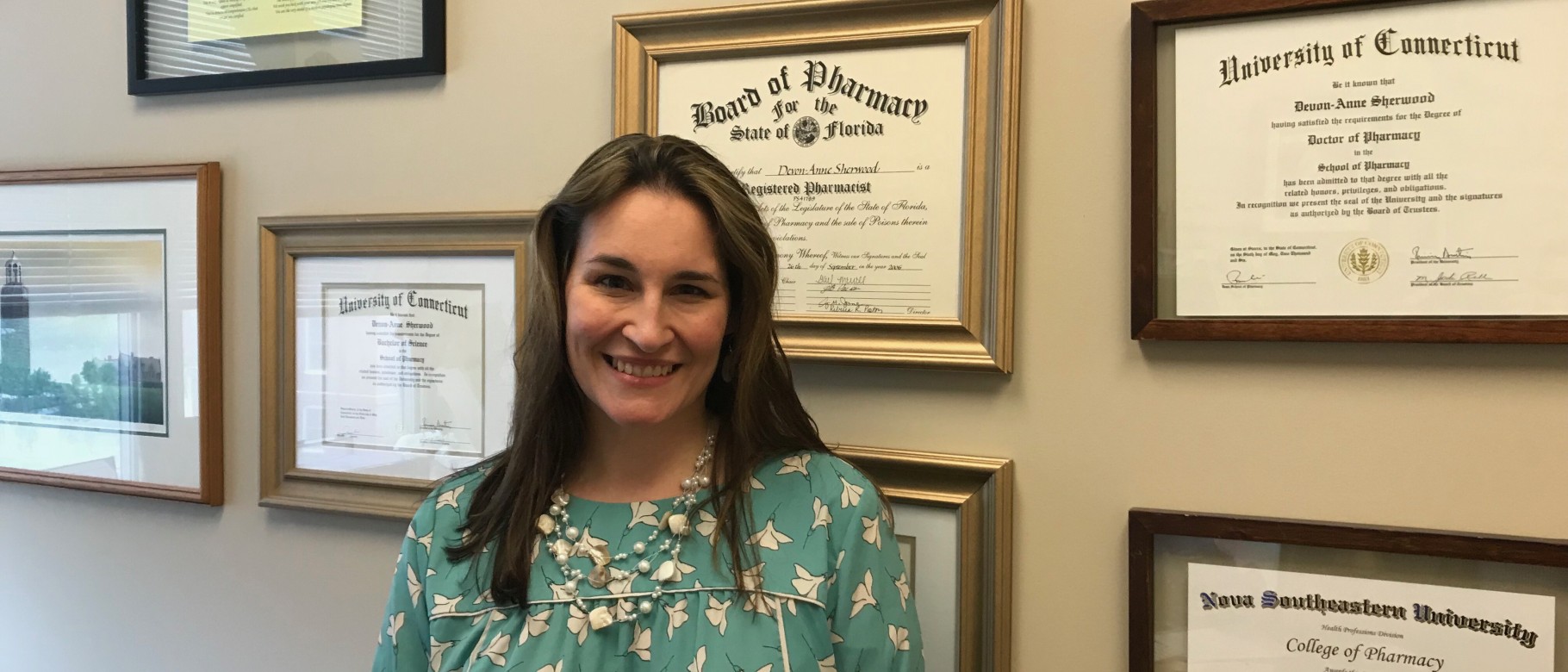UNE’s Devon Sherwood gives presentation at national conference for psychiatric and neurologic pharmacy

Devon Sherwood, Pharm.D., BCPP, assistant professor, College of Pharmacy, delivered a presentation during the College of Psychiatric and Neurologic Pharmacists annual meeting in Indianapolis, Indiana.
Her presentation, “Improving Care Coordination in Schizophrenia Management,” was offered to more than 250 meeting attendees as well as another 500 pharmacists taking continuing education credit online.
Care coordination is vital to improving the quality of life in this population by making sure patients have the right support system and the means to get medications regularly. As part of this coordinated care, pharmacists assist patients in better understanding and managing their medications and collaborating with the health care team to optimize medication selection.
Pharmacotherapy, the use of medications to treat mental disorders, is the mainstay of treatment for patients diagnosed with schizophrenia.
Sherwood says if patients are not taking antipsychotics to manage symptoms, other therapies are generally ineffective.
“Generally, other treatments in schizophrenia are unsuccessful when patients lack reality-based thinking. Antipsychotics can eliminate symptoms of thought disorders to improve patients’ overall function. Medication benefits then allows providers the chance to intervene with other therapies and ultimately improve patients’ quality of life,” she said.
Newer treatment options, including long acting injectables, can help patients stick to their medication requirements and improve adherence. Currently, 38 states in the U.S. have set up locations where pharmacists are allowed to administer those medications. Maine is included under collaborative practice agreements between pharmacists and their health care organizations.
Sherwood says more works needs to be done to make patients aware of those clinics and to advocate for more of them.
“The more we offer access and ease the burden for this underserved population to receive appropriate treatment, the better off patients and everyone else will be. Schizophrenia is one of the most expensive disorders across the lifespan-and not only for a patient; it also places a huge burden on the health care system and taxpayers who support costs through disability and Medicaid,” she said.
To learn more about the University of New England’s College of Pharmacy, visit www.une.edu/pharmacy
To apply, visit www.une.edu/admissions